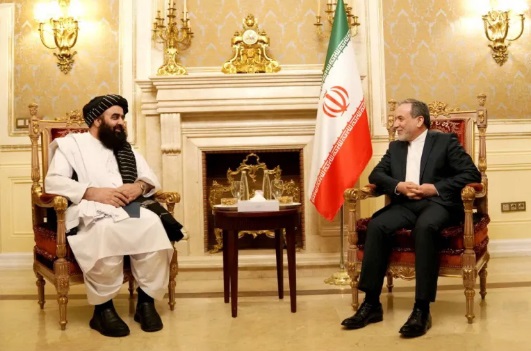Pakistan fears instability in Iran could breed militants in border areas

Pakistan’s army chief stressed during a meeting with U.S. President Donald Trump this week that separatists and jihadists on the Pakistan-Iran border could take advantage of the collapse of the Iranian regime.
Anti-Iranian and anti-Pakistan groups operate on both sides of the 560-mile (900-kilometer) border, according to Reuters. As Israel bombs Iran’s nuclear program, Israeli officials have repeatedly said they are trying to destabilize or even overthrow the Iranian government.
In addition to concerns about the spread of chaos brought by Iran, Pakistan is also worried that Israel will set a precedent for attacking other countries’ nuclear facilities. The two nuclear-armed rivals Pakistan and India clashed for four days in May.
“They are not happy with anything,” Trump said after lunch with Pakistan’s army chief Asim Munir at the White House on Wednesday, referring to Pakistan’s view of the Israeli-Iranian conflict.
The Pakistani military said on Thursday that the two countries discussed Iran and “both leaders stressed the importance of resolving the conflict.”
Pakistan condemned Israel’s attacks on Iran as violating international law.
“What is happening in our brotherly country, Iran, is a very serious problem for us. It threatens the entire regional security structure and has far-reaching implications for us,” Pakistani Foreign Ministry spokesman Shafqat Ali Khan said on Thursday.
Some border militant groups welcomed the unrest.
The Jaish-e-Assad (JaA), an Iranian jihadist group composed of ethnic Baloch and Sunni Muslim minorities operating in Pakistan, said the conflict between Israel and Iran was a perfect opportunity.
“JaA extends a hand of brotherhood to all Iranian people and calls on all people, especially the people of Balochistan and the armed forces, to join the resistance,” the group said in a statement on June 13.
On the other hand, Pakistan is concerned that separatist militants from its Baloch minority, who live in Iran, will also try to step up attacks.
“There is a fear that ungoverned areas will become a breeding ground for terrorist organizations,” said Maliha Lodhi, Pakistan’s former ambassador to Washington.
Pakistan has a volatile border with Taliban-controlled Afghanistan and arch-enemy India. Pakistan does not want to add another volatile border to its long border with Iran.
The Iran-Pakistan border region is inhabited by ethnic Baloch people, a minority in both countries who have long complained of discrimination and launched separatist movements. On the Pakistani side, the region is known as Balochistan and in Iran as Sistan-Baluchestan.
Before Israel’s bombing of Iran, Tehran had closer ties with Pakistan’s arch-enemy India. Last year, Pakistan and Iran even launched air strikes against each other, accusing each other of harboring Baloch militants. But the attack on Iran upended the alliance between the two countries because India did not condemn Israel’s bombing.





